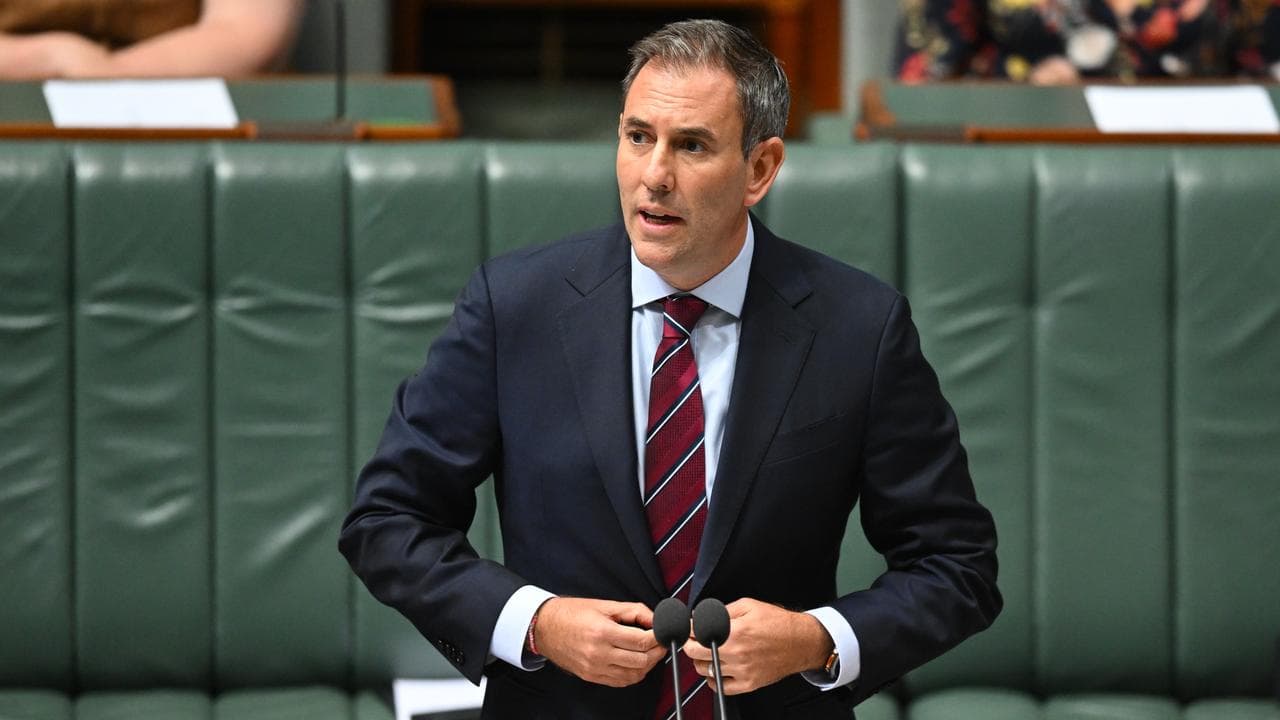
You won't see Jim Chalmers declaring mission accomplished anytime soon, but there is a growing sense the battle against inflation is no longer Australia's number one economic priority.
For the treasurer, the fight to turn around the decades-long trend of declining productivity growth will be even more challenging, as will be convincing the business community that he's the man to do it.
Inflation is headed in the right direction, a recession has been avoided and unemployment has remained low - good news for Australia's economy, said HSBC chief economist Paul Bloxham.
"That said, this aggregate story hides a deeper challenge, which is that productivity growth has been poor," he wrote in a research report.

Growth in productivity - the amount of output an economy squeezes out of the same amount of inputs such as workers - has accounted for more than half of the increase in Australian living standards, as measured by GDP per capita, since federation, according to the Productivity Commission.
But it has sagged since the pandemic, and labour productivity is now back to the same level it was in 2016.
It's one of the reasons why Australians have experienced the steepest fall in living standards across the OECD since 2019.
Although quick to acknowledge Australians are still feeling significant pressure due to inflation, low productivity and economic growth were "important truths" Australia needed to address, Dr Chalmers told a Business Council of Australia dinner on Wednesday night.
In a pre-election pitch to the business community, the treasurer sought to allay concerns that not enough was being done to help the private sector grow.
Government spending and growth in non-market jobs, largely in health and aged care, have masked a private sector slowdown.
"But we know that the best kind of strong and sustainable economic growth means growth led by the private sector," Dr Chalmers said.
The coalition has jumped on the figures to attack Labor for increasing public service jobs.
"The public sector is supporting the economy and the private sector is retreating," opposition finance spokeswoman Jane Hume said.

But there are signs market-sector jobs are bouncing back.
Over the past year, there has been a steady improvement in market-sector jobs growth and hours worked, said ANZ head of Australian economics Adam Boyton.
"After a period of considerable strength, yearly growth in health care and social assistance employment is now around the middle of the pack," he said.
The BCA in its pre-election wishlist on Tuesday asked the major parties to boost productivity by cutting red tape, simplifying planning systems, supporting innovation and reforming the tax system.
Dr Chalmers was eager to point out the work the government had already done, including abolishing nuisance tariffs, overhauling merger settings and investing in skills.
"There was a big focus on productivity in this first term and there will be an even bigger focus in a second, should we win one," he said.
At the heart of that promise is helping businesses leverage new technologies, like AI and clean energy.
He promised to usher in a "fourth economy", after the agrarian-based one of the early 20th century, the manufacturing boom post-World War II and the increase in financial and services sectors after the liberalisation of the 1990s.
"The fourth economy is about how we make Australia an island of opportunity and prosperity in a sea of uncertainty," Dr Chalmers said.
But the government has also made the labour market more inflexible with its industrial relations laws and tax inefficiencies have become more entrenched, as the burden on income tax has increased, AMP chief economist Shane Oliver said.
"The treasurer is right. I mean, they have done some things, but they're relatively minor in the grand scheme of things compared to what's required."




